What We Do in the Shadows (of Our Closet Walls)
There’s enough evidence to insinuate that What We Do in the Shadows is intentionally queer-coded.
Incluvie Foundation Gala - Learn More
“Use the words “little” and “girl” to address me again and I can’t guarantee your safety.” – Wednesday Addams
That pretty much sums up the personality of the titular Wednesday Addams (Jenna Ortega), the protagonist of the Netflix Original series Wednesday. For those who have not yet been introduced to the delectably morbid family, Wednesday Addams is the daughter of Gomez Addams (Luis Guzmán) and Morticia Addams (Catherine Zeta-Jones). She is sarcastic, intelligent, and has a taste for the macabre. To quote her, “Sartre said ‘Hell is other people.’ He was my first crush.” Wednesday Addams struggles to get along with people due to her complete lack of empathy. She sees the world as a “place that must be endured” and that doesn’t help her social skills. But, she is sharp and uses her lack of emotional connection to analyze situations from objective perspectives and solve mysteries unhindered by partiality. She is like an eagle perched on the top branch of the tallest tree, a deadly observer, waiting for the correct time to reveal herself and solve all problems at hand.
In Wednesday, however, Wednesday Addams is far from a silent and detached observer. Wednesday is as much a coming-of-age series as it is a mystery thriller, and the coming-of-age aspect plays out through Wednesday’s adventures, or misadventures to be precise. Navigating a space where people lie to cover up horrible truths and are guided more by their prejudices than their sense of urgency to get at the truth is not easy for Wednesday Addams. She makes and loses friends and foes, and gradually learns to appreciate the nuances of human interaction, without for a second sacrificing her own individuality. Her natural penchant for feeding bullies to piranhas is untouched by the end of the series, but she goes through a change of heart about the world and some of the people in it.
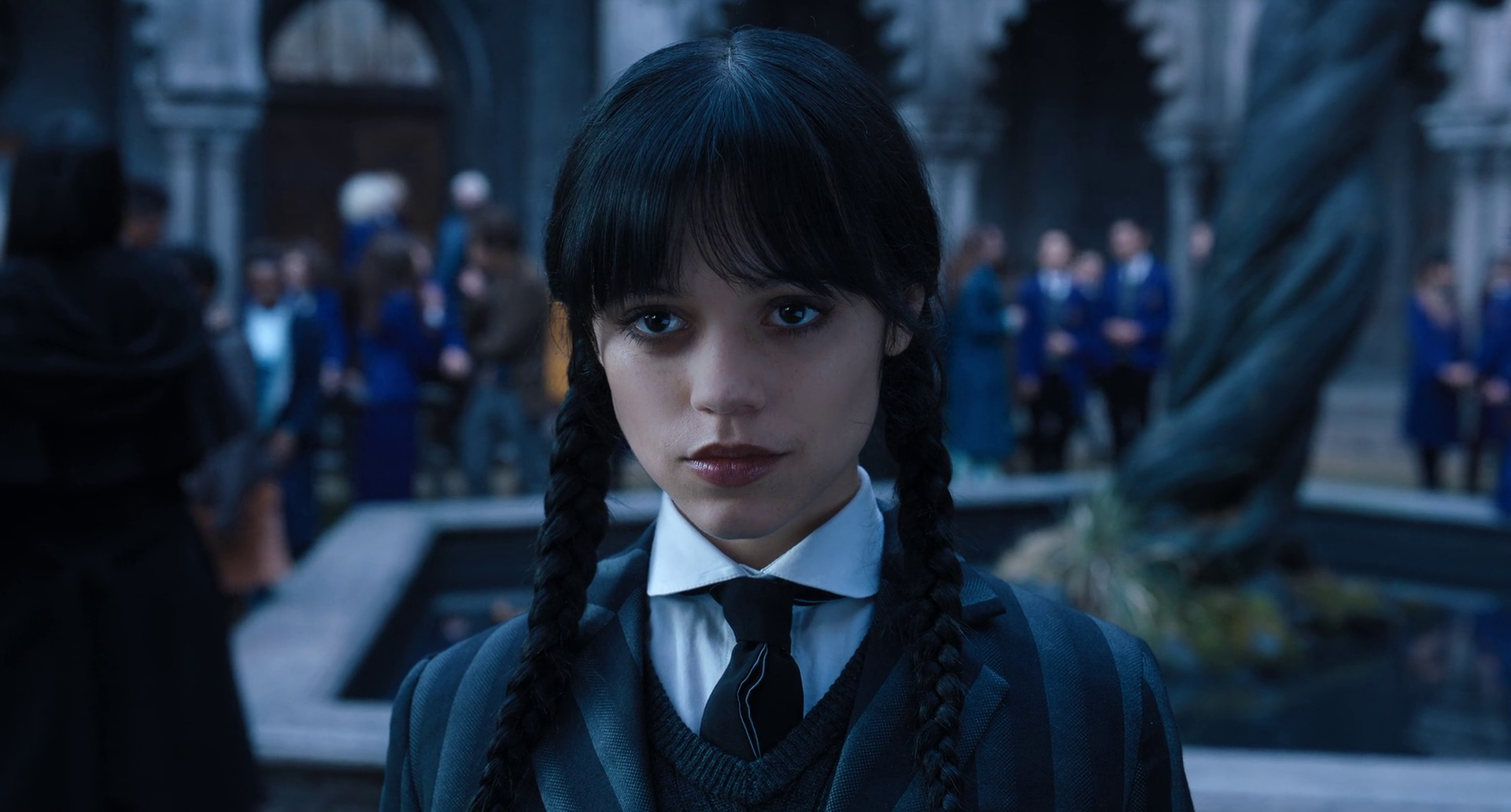
Wednesday starts like any typical coming-of-age story. The protagonist’s life is upended and they’re introduced to circumstances they initially hate. Wednesday Addams gets kicked out of her high school after she tries to get back at the boy who bullied her brother by dumping piranha in the pool while he was swimming. So she is taken to Nevermore Academy, a school for the special “outcasts” of the world. These outcasts include witches, werewolves, vampires, and almost everyone who has supernatural attributes. It is revealed in the very first scene of the series that Wednesday gets psychic visions, so it makes sense for her to be at Nevermore. Amidst attempts to run away from school, she slowly starts unearthing clues to a mystery that has been haunting Jericho County for a while. Located on the outskirts of Jericho, Nevermore’s students are the prime suspect in the spree of murders happening there. Apparently, a beast has been hunting down civilians and killing them. Wednesday Addams has a psychic vision about it and decides to dedicate her time to hunting down the beast. She writes detective novels and has developed a penchant for solving mysteries.
The story structure of Wednesday is unique in that it has the typical narrative structure of all three genres – horror, mystery, and coming-of-age blended in perfect sync with each other. Wednesday goes through the familiar stages of rejecting her new circumstances, finding something intriguing that keeps her there, forming meaningful bonds she never wanted to, and eventually becoming invested in the place she wanted to leave initially. The character development happens at the same pace as the development of the mystery. The mystery is designed like a classic whodunit, with the list of suspects growing and narrowing at every turn. We have a very reliable narrator in Wednesday Addams who takes us through the revelations and the logical complexities of the mystery at hand. Meanwhile, the mystery is itself sinister in nature and this makes way for the horror aspect of the story. With a few jumpscares and a lot of gory visuals, the series has a treat waiting for fans of sanitary horror. It isn’t difficult to stomach but still leaves an impact. And every episode ends with either a twist that changes everything or a horrifying visual that gets burnt into the viewer’s mind.
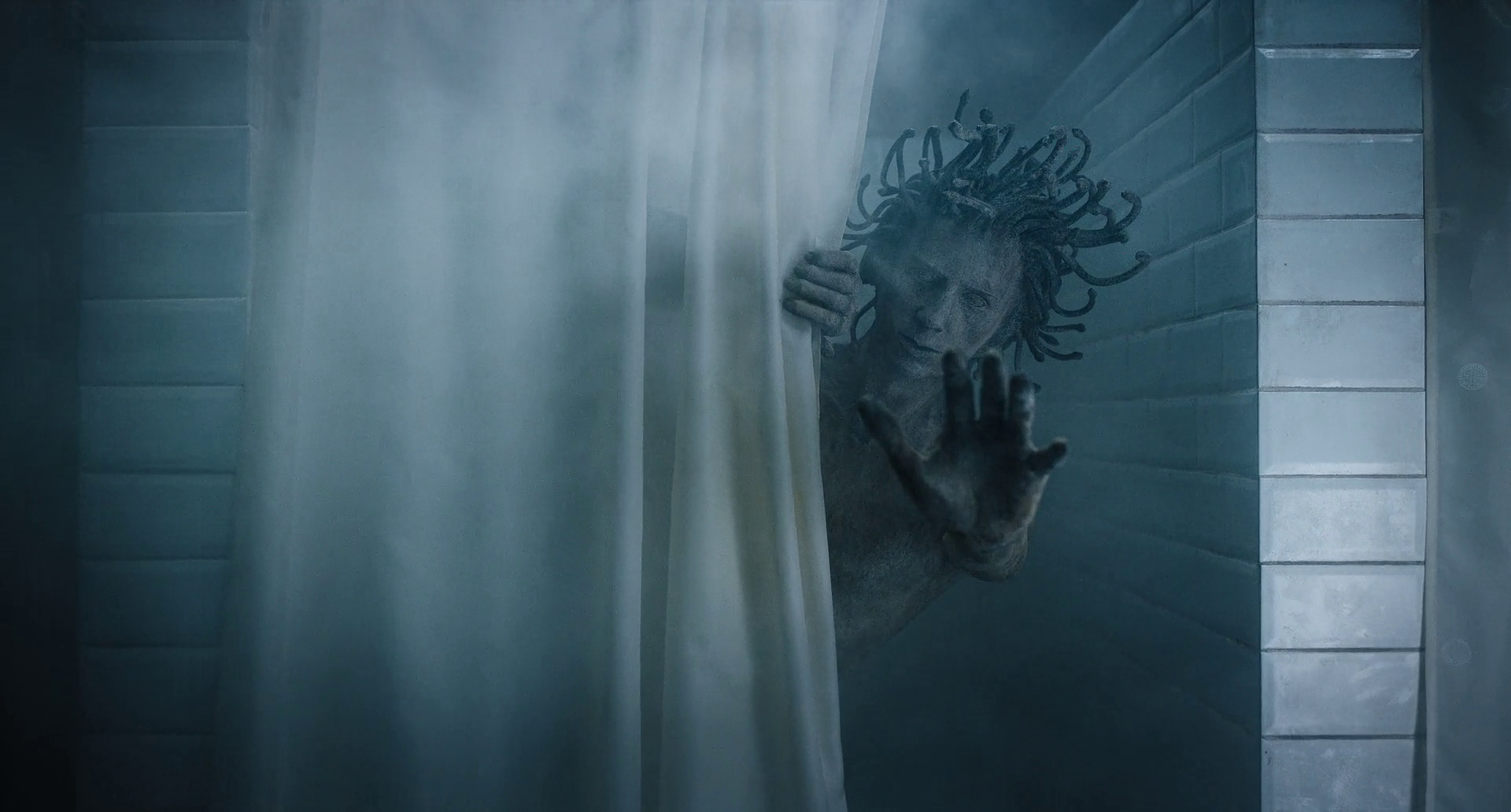
Wednesday Addams’ wardrobe is possibly darker than a moonless night. With clothes in different shades of black, each darker than the other, she is the prime example of gothic fashion. In fact, her ensemble is described by a character in the series as a “snarky goth girl thing”. She is inherently pessimistic and naturally assumes the worst of everyone. A rebel by nature, she hates physical or emotional intimacy and stays aloof. Her time and energy are devoted to her novel writing and scheming. She loves playing harmful, practical pranks on her brother like attempted beheading, and says that if someone hears her “screaming bloody murder, there’s a good chance I am [she is] enjoying herself.” Her appearance is intimidating and her presence unnerving. Her black eyeliner, long ponytails, and bangs on her forehead, all give her a mysterious facial appearance, and cloaked in black, she looks like a phantom to avoid if you don’t want to die.
In keeping with the cult classic films The Addams Family and Addams Family Values, Wednesday Addams has the most morbid fantasies and fascinations in Wednesday too. Christina Ricci portrayed the character to perfection in those older movies but Jenna Ortega does an amazing job of honoring her legacy. She has the same cold and uncomfortable disposition and the same poker face when saying disturbing things like “I enjoy funerals. I’ve been crashing them since I was old enough to read the obituary section.” But Jenna brings an emotional core to the traditionally cold character that doesn’t seem to contradict what we know about her from the older movies and series about the Addams family. Since Wednesday is essentially a coming-of-age series, this fits in well within the dark aesthetic of the show. In fact, it’s the apparently paradoxical nature of Wednesday Addams that takes the coming-of-age plot further. Jenna’s superior performance makes the moments of emotional confrontation accessible.
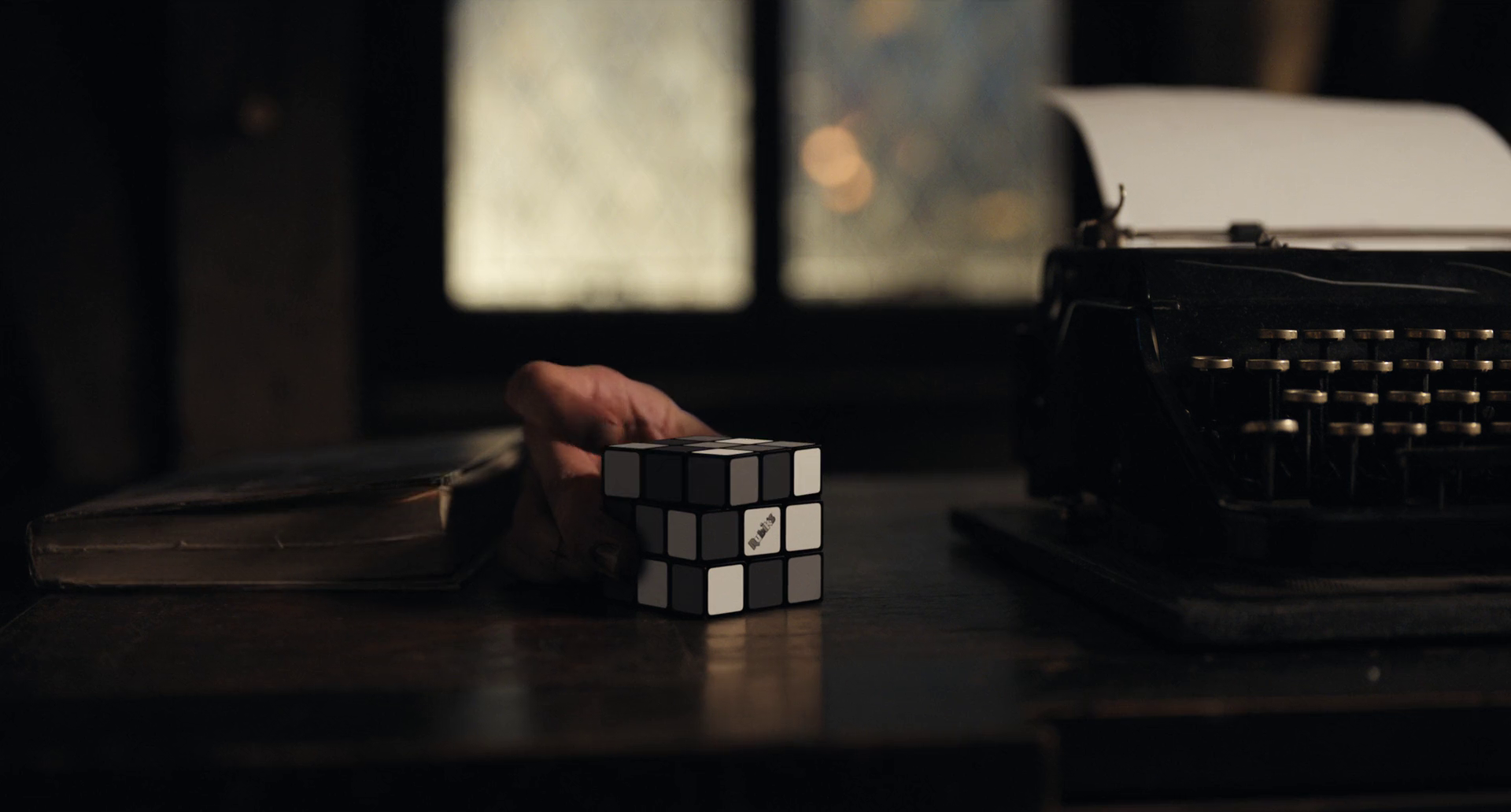
While Wednesday Addams herself is the most interesting protagonist, she is surrounded by a large group of intriguing supporting characters in Wednesday. First, there is her roommate Enid (Emma Myers). Enid is a werewolf who is yet to “wolf out”, that is, morph into a wolf. She is practically the polar opposite of Wednesday Addams in disposition. Enid wears bright colorful clothes, has a spring in her step, colors the ends of her shoulder-length bleached hair pink and blue, and even has a rainbow-colored stained glass window in her room. Her camaraderie with Wednesday is naturally strained at first. In fact, the first thing Wednesday does is divide their room in half so that Enid has a colorful half while Wednesday’s side is monochrome. She even scrapes off the rainbow sticker from the window on her side of the room. But with time, opposites come together and Enid and Wednesday forge a true sisterly bond. Yet, they aren’t detective partners in the story and this is a beautiful subversion of the usual detective trope of having a contradictory partner who is opposite in every way. Enid is actually smart as well and contributes to Wednesday’s peace of mind in her own way.
Apart from Enid, there is Nevermore’s resident loner student Xavier Thorpe (Percy Hynes White). He is mysterious, but kind, with a special ability to bring paintings and pencil sketches to life. Then there is the president of the Hummer’s club (bee-harvesting extracurricular club), Eugene Otinger (Moosa Moustafa). He is sidelined by his school as a loser, but he quickly befriends Wednesday Addams, who reciprocates the sentiment. Principal Weems (Gwendoline Christie) is a perfect contradiction to Wednesday’s wide-eyed innocence. She represents the nuanced mysterious world of adulthood. Contrary to her, Wednesday’s “dorm mother” Ms. Thornhill (Christina Ricci) is a regular person, quite literally. Giving Ricci, who became a fan favorite for playing Wednesday before, an important role in Wednesday’s arc is a nice touch from the show’s creators. Another important figure is Wednesday’s only “normie” friend, barista Tyler Galpin (Hunter Doohan). Normies are people without supernatural attributes. Tyler’s bond with Wednesday is another major source of reckoning for the character as he is responsible for her feeling emotions which drive her growth as a character. There’s a psychiatrist, a detective, and many more notable characters who all have compelling moments to contribute to the story beyond Wednesday’s perspective. The most interesting of them all, however, is Thing. Thing happens to be a hand. There is no body attached to him, but he is eccentric, playful, and definitely knows how to make an impression. He is Wednesday’s partner in both crime and crime-fighting and the two of them make a brilliant pair as he dances across surfaces while her intelligent brain performs mental gymnastics.
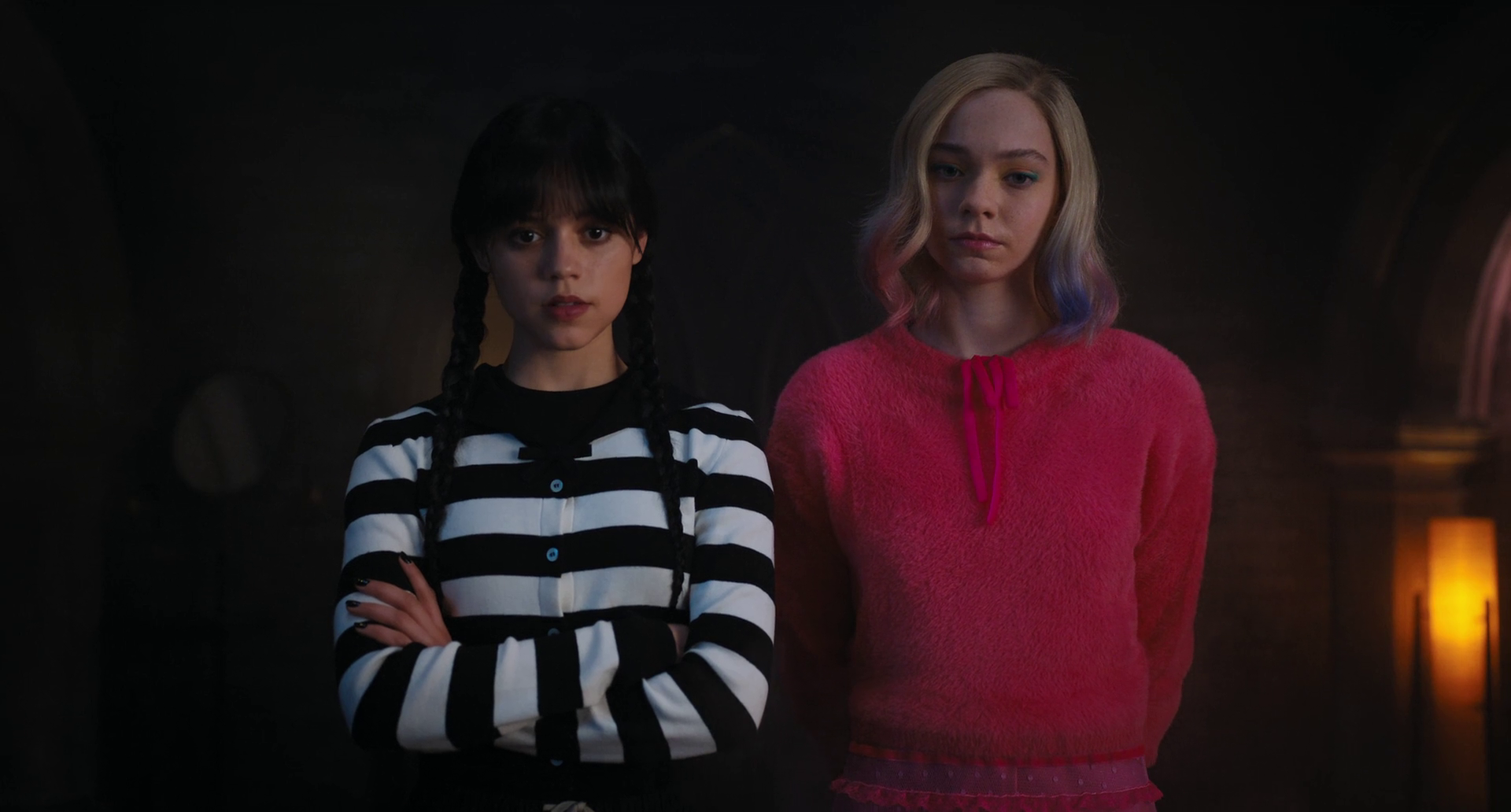
Like with the Muggles and magical folk in Harry Potter, Wednesday’s world also features division based on fear. This isn’t even subtle in the screenplay as the supernatural people are literally called outcasts and the others, normies. Outcasts don’t have a truly safe space in the world and that drives Principal Weems to take morally dubious steps and cover up crimes to ensure that no one is able to litigate against the existence of Nevermore, the only real haven afforded to the outcasts. The school is always at risk because Jericho itself is home to a lot of bigots. The year before Wednesday Addams arrives at Nevermore, there was even an incident where some of the kids from Jericho beat up a Nevermore student. Wednesday is written with current political scenarios in mind. The lore of hate crimes against outcasts by normies is unfortunately very familiar. Be it femicide, anti-queer crime, Apartheid, the Holocaust, or the Assyrian genocide, history is full of examples of heinous hate crimes against various communities. Jericho has its own Hitler as the series reveals in the later episodes and Nevermore was in fact initially founded to provide security to the outcasts living in and around Jericho.
And just like in history, the bigotry is primarily one-sided. Outcasts have no collective grudge against normies, despite the latter community’s history of hate crimes. The only kind of vendetta for them is personal. For that matter, Ms. Thornhill is a normie herself. Principal Weems and Ms. Thornhill’s camaraderie is a heartwarming touch. There’s also the friendship between Tyler and Wednesday herself. The pervasive nature of bigotry is the overarching theme of the story, but it isn’t the central focus all the time. The politics in Wednesday are relatively tame, barring some reminders or portrayals of hate crimes. It isn’t ignored, however, and each character’s relationship with divisive politics is sensitively written to depict the way such politics affect the world and the relations between the people in it. There’s division within the outcasts too, for that matter, and one of the students at Nevermore even describes himself as an outcast in a school full of outcasts. He insinuates that this applies to Wednesday Addams as well because she is inherently opposed to bonding with her peers.
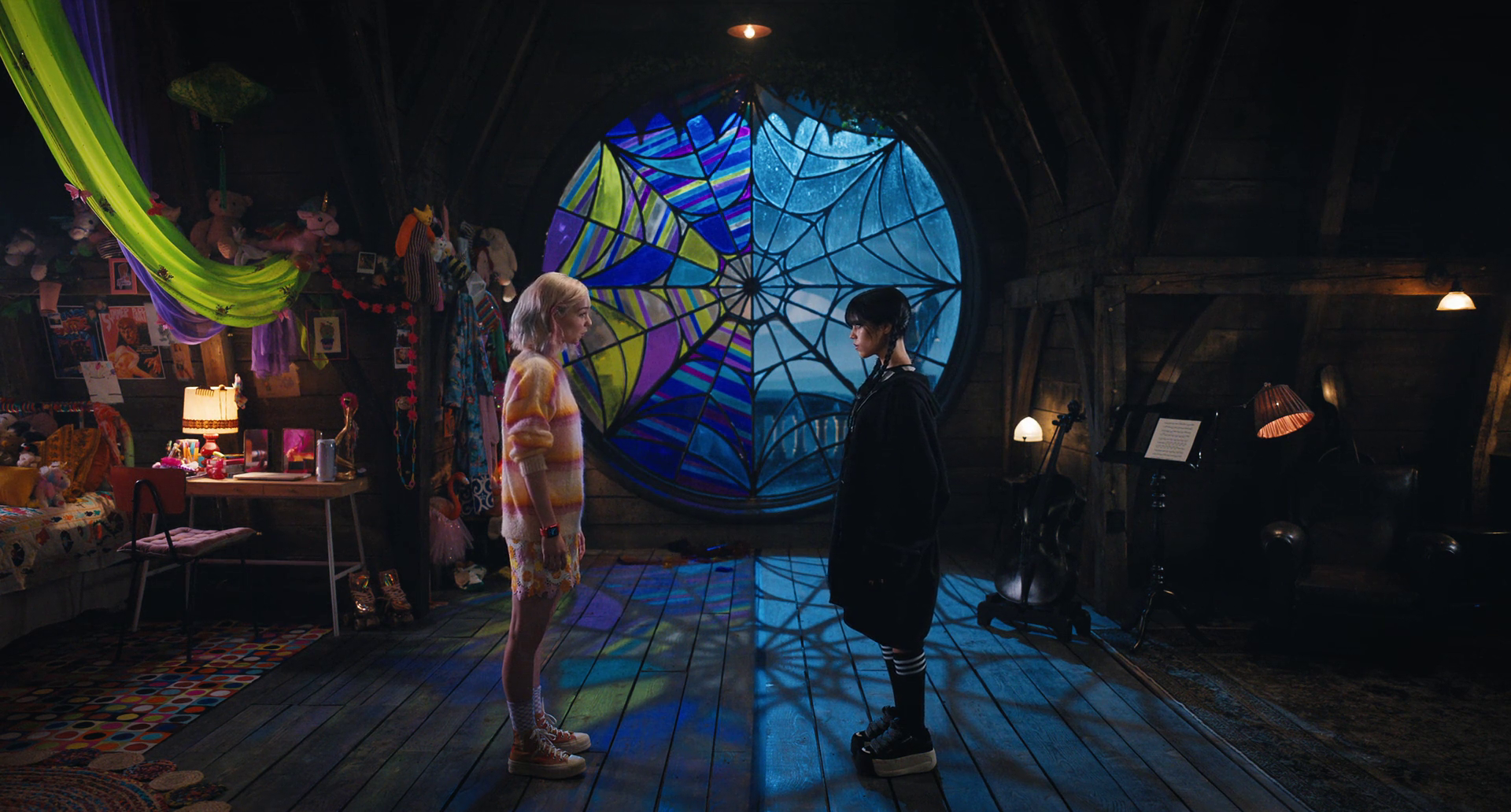
Wednesday’s mother Morticia is an ex-student of Nevermore Academy and used to be Principal Weems’ classmate. While at Nevermore, Morticia’s reputation seems to consistently haunt Wednesday. In Wednesday Addams’ own words, “every day is all about me [her]” and so she despises the feeling of being defined by her mother and her past. This is a major theme in her story arc and the biggest issue she has to reconcile while coming of age through the season. She has an already strained relationship with her mother and the prospect of turning into her really scares Wednesday. They are both Addamses, they both started having visions around the same age, and Wednesday even lives in the same dormitory in which Morticia lived. What’s more, both of them are contacted by their contemporary members of the secret student club at Nevermore. In a particularly emotional moment, Wednesday asks her mother, “Why did you send me somewhere where I could only exist in your shadow?” The generational trauma accrued by having one’s parent impose their ambitions and fantasies on them is a common problem that plagues many people in every generation. Gillian Flynn’s novel ‘Sharp Objects’ has a quote “I just think some women aren’t made to be mothers. And some women aren’t made to be daughters.” Wednesday and Morticia’s relationship seems to have been written with this in mind.
It’s not just Wednesday Addams though, Enid has a strained relationship with her mother as well. Enid has been unable to wolf out, and her mother won’t stop judging her for that. She keeps making suggestions and pointed inquiries about Enid’s life. There’s almost the implication that Enid will bring shame to the family if she keeps being like this. That is very reminiscent of the Disney classic Mulan, where the titular Mulan, when told she is unfit for marriage is said to be destined to bring shame upon her family. The fathers in Wednesday aren’t exceptions either, as Tyler keeps trying to spend time with his father, the town detective, and keeps getting blown off. His father even mocks him for going to therapy and just ignores the traumatic effect of his mother’s untimely death. Some of the other students at Nevermore also have strained relationships with their parents, but delving into that would essentially mean giving away spoilers. But just like the impact of the divisive politics of the world, the impact of flawed parenthood is also written into the fabric of each character’s being. These two themes complement each other as the mystery storyline is mainly centered on the politics and the coming-of-age one on the generational trauma.
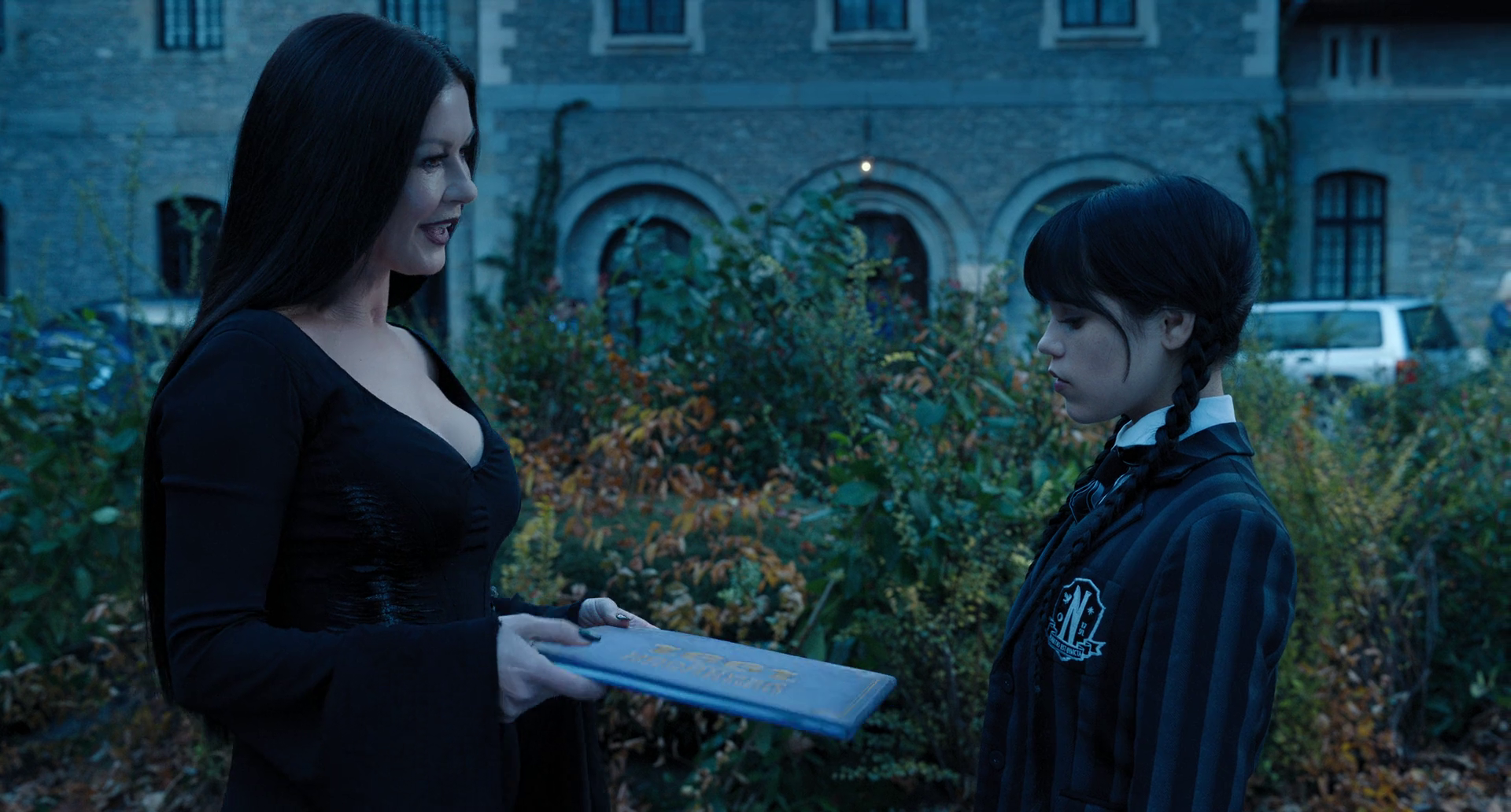
Firstly, through the experiences of Wednesday Addams and her peers, Wednesday explores bigotry and profiling at the hands of normies, something every minority community in the world can relate to, as unfortunate as that is. But within that narrative, it presents heartwarming moments of bonding. This includes situations of solidarity as the outcast community comes together against attacks from normies, supporting even those who they had personal grievances against. Along with those, it includes the bonding between normies and outcasts as well. Wednesday paints a brutal but simultaneously tender portrait of reality in its depiction of politics. And in keeping with the narrative theme of inclusivity, the crew and the cast of the series are diverse as well. While the Addams family is Hispanic, the characters were played by a majorly Caucasian cast in the cult classic films mentioned earlier. The series corrects this by casting Jenna Ortega as Wednesday Addams and Luis Guzman as Gomez Addams, both of whom are Latinx performers.
Not only is Wednesday a fun watch for horror aficionados and fans of Jenna Ortega, or of the Addams Family franchise, it’s a light-hearted but meaningful story that kids will enjoy. Wednesday Addams is a young woman, much like the titular character from the Netflix Original franchise Enola Holmes and she is a character one can easily get invested in and root for. The story comes with lessons about inclusivity, with a macabre but intelligent mystery, and with a lot of dry humor which high schoolers may appreciate. There are no real explicit scenes and the adult themes are presented from a teenage perspective because the protagonist is a teenager herself. So, there is no reason the content of Wednesday needs to be kept away from teens. This is a perfect PG-13 watch and a treat for children who want teenage detectives. It is also a great introduction to the world of the Addams Family for those unfamiliar with the franchise. The tone of the story is exactly as morbid but humorous as the films and the age-old TV series about the family. Wednesday is highly recommended, especially because of Jenna Ortega’s superior portrayal of the mischievous, cold, but sweet underneath Wednesday Addams. And her fashion sense. For those who like the color black, wardrobe jealousy could become a very real part of the experience of watching Wednesday. From comfortable hoodies to lace dresses, Wednesday has it all, and entirely in black. In the words of her father, “those accusing eyes and youthful sneer” make her a charming screen presence.
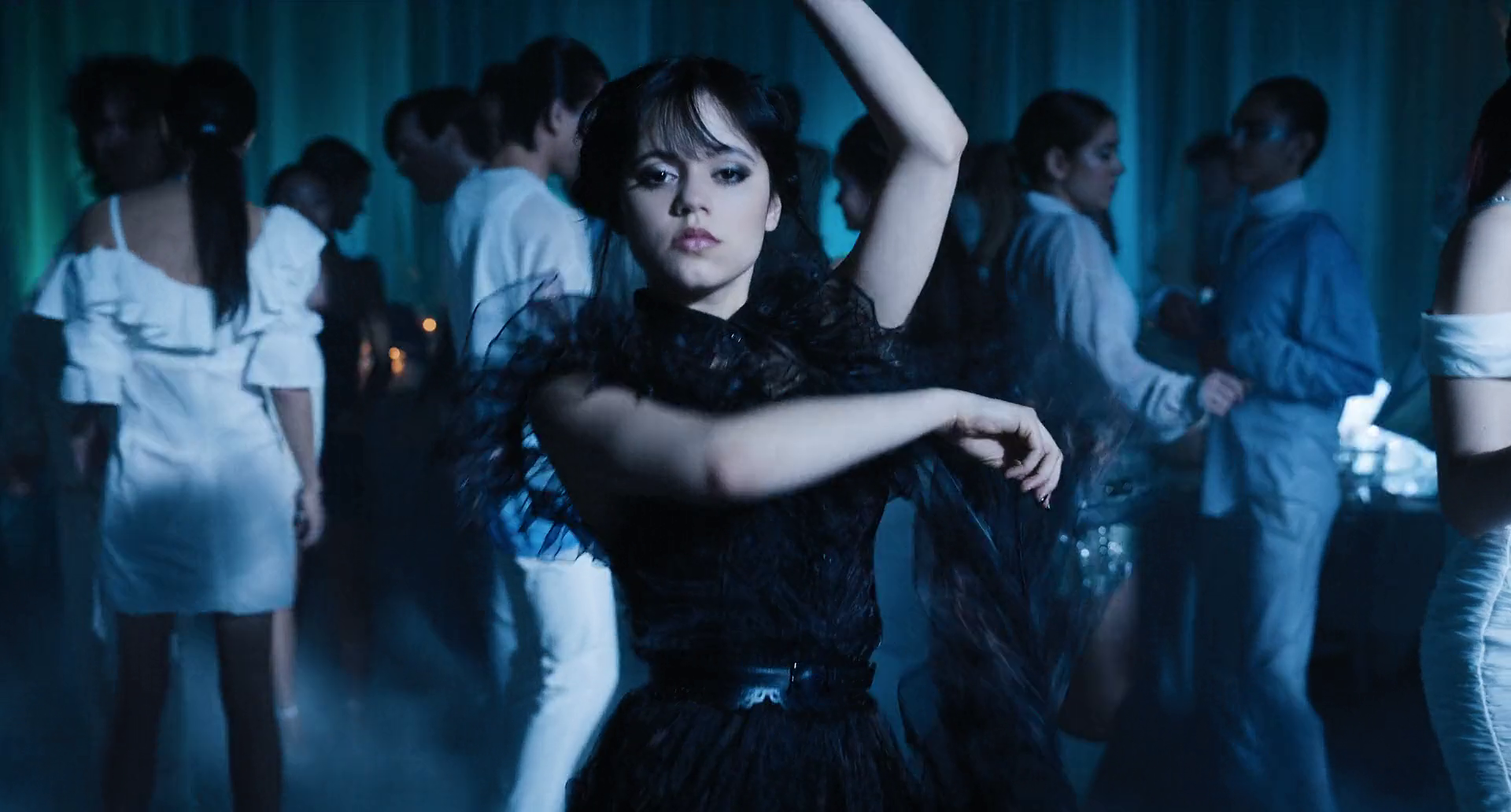
Wednesday is now streaming on Netflix.

Related lists created by the same author
There’s enough evidence to insinuate that What We Do in the Shadows is intentionally queer-coded.